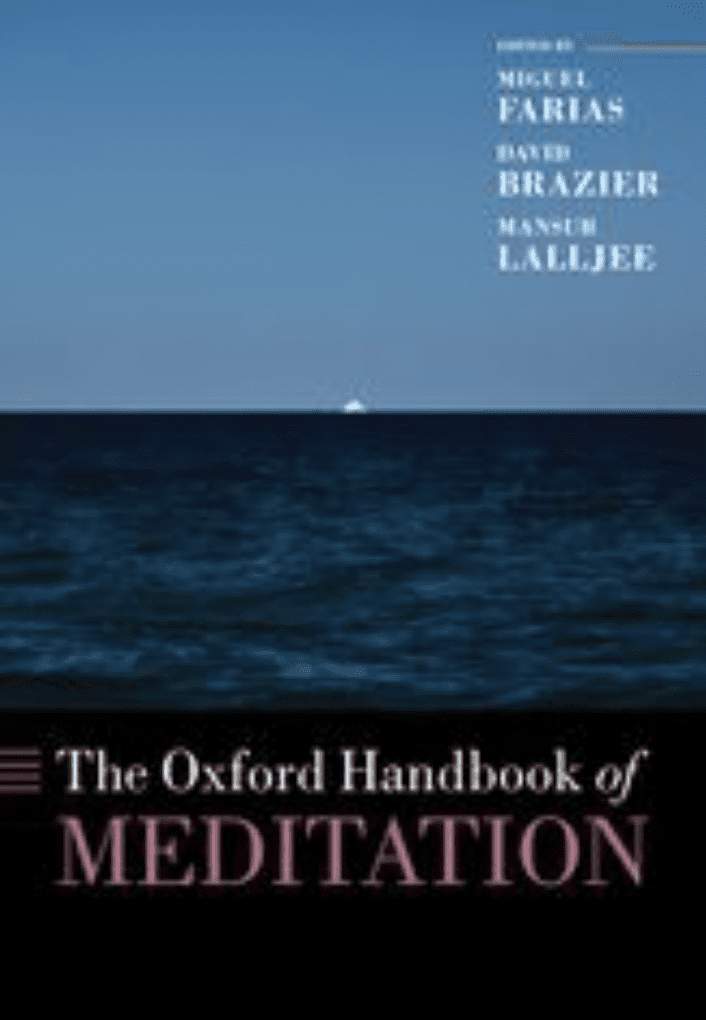Assessing medieval Śākta history in the light of Indian inscriptions
Dr Bihani Sarkar
24 February 2021, 2.00-3.00
Abstract: In studies of religious history in early India, inscriptions have sometimes been overlooked as conveying ‘mundane’ information about secular aspects of religion considered unimportant. Religious texts, philosophical and liturgical, and practices, on the other hand, have received comparatively greater interest as vehicles of doctrine, mythology and tradition. In recent years, scholarship on Indian religions has begun to show the importance of inscriptional material for a more precise historical and conceptual understanding of Indian religious traditions from the ‘early medieval’ period, Śaivism, Vaiṣṇavism, Tantric Buddhism and Śāktism. Not only do these pieces of material history offer basic information needed for the construction of any historical argument, such as dates, names, and places, but they can reveal wider conceptual and political narratives. How were deities conceived and described? How did temples grow powerful? How did local deities grow powerful? Why were donors making grants? Who were the donors? What kinds of donations did they make? What rituals were performed for the recipient deities? Which were the important devotee-lineages? And much more.
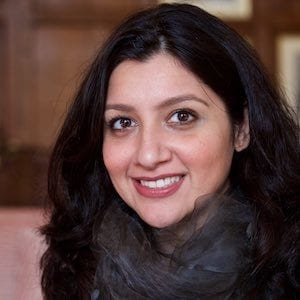 Dr Bihani Sarkar: is Lecturer (Hourly-Paid, fixed term) in Religious Studies: Hinduism and Buddhism (University of Winchester), Associate Faculty Member of the Oriental Institute (University of Oxford), and Research Member of Common Room, Wolfson College (University of Oxford). Bihani’s publications include Heroic Shāktism: The Cult of Durgā in Ancient Indian Kingship, (Oxford University Press, 2017) and Classical Sanskrit Tragedy: the concept of suffering and pathos in Medieval India (Bloomsbury, forthcoming 2021).
Dr Bihani Sarkar: is Lecturer (Hourly-Paid, fixed term) in Religious Studies: Hinduism and Buddhism (University of Winchester), Associate Faculty Member of the Oriental Institute (University of Oxford), and Research Member of Common Room, Wolfson College (University of Oxford). Bihani’s publications include Heroic Shāktism: The Cult of Durgā in Ancient Indian Kingship, (Oxford University Press, 2017) and Classical Sanskrit Tragedy: the concept of suffering and pathos in Medieval India (Bloomsbury, forthcoming 2021).

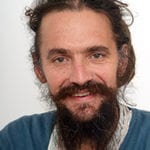 Dr James Mallinson: is Reader in Indology and Yoga Studies at SOAS University of London. He is Chair of SOAS’s Centre for Yoga Studies and the Principal Investigator of the ERC-funded Hatha Yoga Project, for which he is preparing five critical editions of Sanskrit texts on physical yoga and a monograph on its early history. Dr Mallinson is the author of several books and articles on yoga, and the co-author, with Dr. Mark Singleton, of Roots of Yoga (Penguin Classics 2017).
Dr James Mallinson: is Reader in Indology and Yoga Studies at SOAS University of London. He is Chair of SOAS’s Centre for Yoga Studies and the Principal Investigator of the ERC-funded Hatha Yoga Project, for which he is preparing five critical editions of Sanskrit texts on physical yoga and a monograph on its early history. Dr Mallinson is the author of several books and articles on yoga, and the co-author, with Dr. Mark Singleton, of Roots of Yoga (Penguin Classics 2017).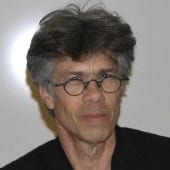 Prof. David G. White is the J. F. Rowny Professor of Comparative Religions at the University of California, Santa Barbara, where he has been teaching since 1996. Prior to coming to Santa Barbara, he taught at the University of Virginia between 1986 and 1996. There, he founded the University of Virginia Study Abroad Program in Jodhpur, India in 1994. White is the sole foreign scholar to have ever been admitted to the Centre d’Études de l’Inde et de l’Asie du Sud in Paris, France, where he has been an active Research Fellow since 1992. His current research interest concerns contacts and exchanges in matters of demonology. Prof. White’s book publications include The Yoga Sutra of Patanjali (Princeton University Press, 2014), Yoga in Practice (Princeton University Press, 2012), Sinister Yogis (University Press of Chicago, 2009), Kiss of the Yogini: “Tantric Sex” in its South Asian Context (University Press of Chicago, 2003), The Alchemy Body: Siddha Traditions in Medieval India (University Press of Chicago, 1996).
Prof. David G. White is the J. F. Rowny Professor of Comparative Religions at the University of California, Santa Barbara, where he has been teaching since 1996. Prior to coming to Santa Barbara, he taught at the University of Virginia between 1986 and 1996. There, he founded the University of Virginia Study Abroad Program in Jodhpur, India in 1994. White is the sole foreign scholar to have ever been admitted to the Centre d’Études de l’Inde et de l’Asie du Sud in Paris, France, where he has been an active Research Fellow since 1992. His current research interest concerns contacts and exchanges in matters of demonology. Prof. White’s book publications include The Yoga Sutra of Patanjali (Princeton University Press, 2014), Yoga in Practice (Princeton University Press, 2012), Sinister Yogis (University Press of Chicago, 2009), Kiss of the Yogini: “Tantric Sex” in its South Asian Context (University Press of Chicago, 2003), The Alchemy Body: Siddha Traditions in Medieval India (University Press of Chicago, 1996). 

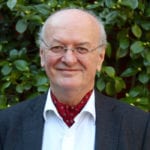 Prof. Alexis Sanderson: after a training in Classics, began his Indological career as a student of Sanskrit at Balliol College, Oxford in 1969. After graduation he spent six years studying the Kashmirian Śaiva literature in Kashmir with the Śaiva scholar and guru Swami Lakshman Joo from 1971 to 1977 while holding research positions at Merton and Brasenose Colleges. From 1977 to 1992 he was Associate Professor (University Lecturer) of Sanskrit in the University of Oxford and a Fellow of Wolfson College. In 1992 he was elected to the Spalding Professorship of Eastern Religions and Ethics at Oxford and thereby became a Fellow of All Souls College. He retired from that post in 2015. Since then he has been preparing a critical edition, with a translation and commentary, of the Tantrāloka, Abhinavagupta’s monumental exposition of the Śākta Śaivism of the Trika.
Prof. Alexis Sanderson: after a training in Classics, began his Indological career as a student of Sanskrit at Balliol College, Oxford in 1969. After graduation he spent six years studying the Kashmirian Śaiva literature in Kashmir with the Śaiva scholar and guru Swami Lakshman Joo from 1971 to 1977 while holding research positions at Merton and Brasenose Colleges. From 1977 to 1992 he was Associate Professor (University Lecturer) of Sanskrit in the University of Oxford and a Fellow of Wolfson College. In 1992 he was elected to the Spalding Professorship of Eastern Religions and Ethics at Oxford and thereby became a Fellow of All Souls College. He retired from that post in 2015. Since then he has been preparing a critical edition, with a translation and commentary, of the Tantrāloka, Abhinavagupta’s monumental exposition of the Śākta Śaivism of the Trika. Prof. Gavin Flood: is Professor of Hindu Studies and Comparative Religion at Oxford University, Academic Director of the Oxford Centre for Hindu Studies, and Senior Research Fellow at
Prof. Gavin Flood: is Professor of Hindu Studies and Comparative Religion at Oxford University, Academic Director of the Oxford Centre for Hindu Studies, and Senior Research Fellow at 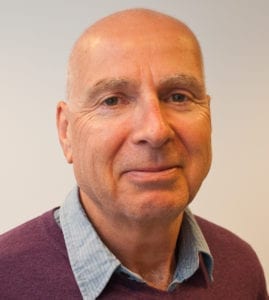 Prof. Knut Axel Jakobsen: is professor in the study of religions at the University of Bergen, Norway. Jacobsen’s main research fields are Hindu Studies, classical and contemporary Sāṃkhya and Yoga, South Asian pilgrimage traditions and ideas and rituals of space and time, and diasporas and the globalization of South Asia religions. He is the author of Prakṛti in Sāṃkhya-Yoga: Material Principle: Religious Experience, Ethical Implications (Peter Lang, 1999), Kapila: Founder of Sāṃkhya and Avatāra of Viṣṇu (Munshiram Manoharlal, 2008), Pilgrimage in the Hindu Tradition: Salvific Space (Routledge, 2013) and Yoga in Modern Hinduism: Hariharānanda Āraṇya and Sāṃkhyayoga (Routledge, 2018). Other recent publications include the edited volumes Routledge Handbook of Contemporary India (Routledge, 2016). Jacobsen is the founding Editor-in-Chief of the six volumes Brill’s Encyclopedia of Hinduism (Brill, 2009-2015) and the Brill’s Encyclopedia of Hinduism Online, and editor of the two volumes Handbook of Hinduism in Europe (Brill, 2020).
Prof. Knut Axel Jakobsen: is professor in the study of religions at the University of Bergen, Norway. Jacobsen’s main research fields are Hindu Studies, classical and contemporary Sāṃkhya and Yoga, South Asian pilgrimage traditions and ideas and rituals of space and time, and diasporas and the globalization of South Asia religions. He is the author of Prakṛti in Sāṃkhya-Yoga: Material Principle: Religious Experience, Ethical Implications (Peter Lang, 1999), Kapila: Founder of Sāṃkhya and Avatāra of Viṣṇu (Munshiram Manoharlal, 2008), Pilgrimage in the Hindu Tradition: Salvific Space (Routledge, 2013) and Yoga in Modern Hinduism: Hariharānanda Āraṇya and Sāṃkhyayoga (Routledge, 2018). Other recent publications include the edited volumes Routledge Handbook of Contemporary India (Routledge, 2016). Jacobsen is the founding Editor-in-Chief of the six volumes Brill’s Encyclopedia of Hinduism (Brill, 2009-2015) and the Brill’s Encyclopedia of Hinduism Online, and editor of the two volumes Handbook of Hinduism in Europe (Brill, 2020). Dr Bjarne Wernicke-Olesen: is a Research Lecturer at the centre and tutor in Hinduism, Buddhism and Sanskrit at the Faculty of Theology and Religion. He teaches courses, seminars and tutorials in Sanskrit, Pāli and Indian religions as well as courses and seminars on manuscript reading and theory and method in the Study of Religion. He is currently leading and managing a research project on Śākta Traditions and a research programme on the Comparative Study of Religion together with Prof. Gavin Flood. He is the founder of the OCHS Kathmandu Office and also the founder and supervisor of a student exchange programme with Aarhus University.
Dr Bjarne Wernicke-Olesen: is a Research Lecturer at the centre and tutor in Hinduism, Buddhism and Sanskrit at the Faculty of Theology and Religion. He teaches courses, seminars and tutorials in Sanskrit, Pāli and Indian religions as well as courses and seminars on manuscript reading and theory and method in the Study of Religion. He is currently leading and managing a research project on Śākta Traditions and a research programme on the Comparative Study of Religion together with Prof. Gavin Flood. He is the founder of the OCHS Kathmandu Office and also the founder and supervisor of a student exchange programme with Aarhus University.
